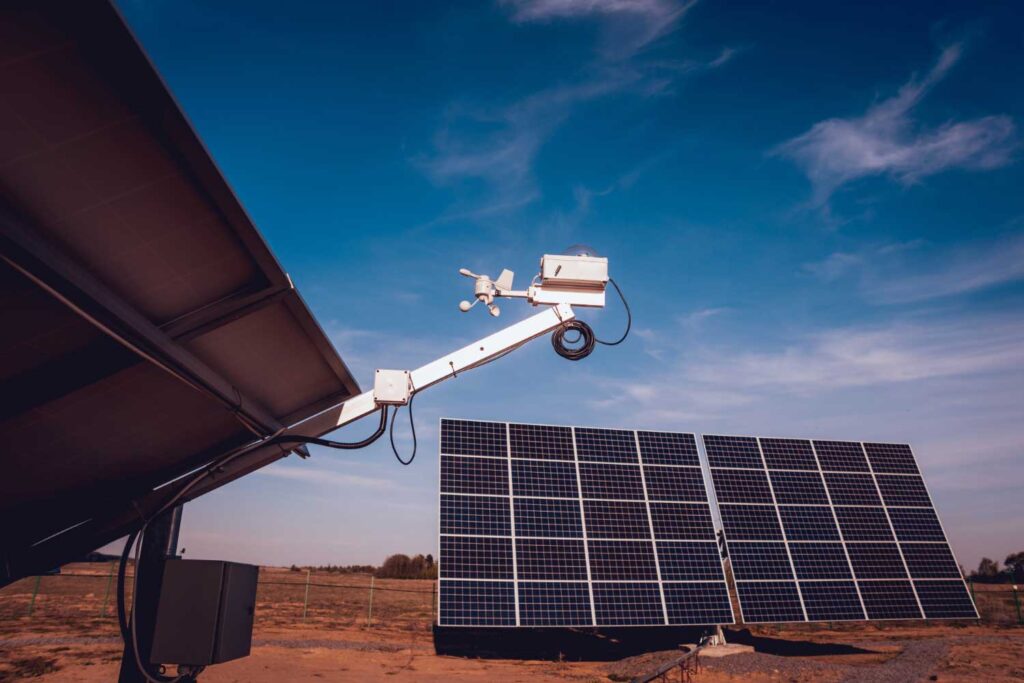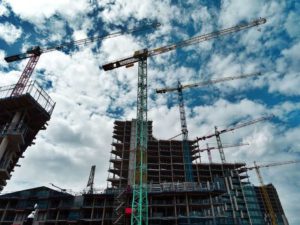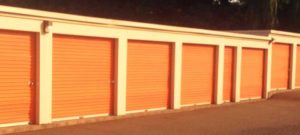Physical security is like insurance – you only notice it when something goes wrong. But while insurance has become “automatic” for most enterprises (and required in some), physical security remains a choice.
This is especially true in new industries, where the rush to go to market often leaves security as an afterthought. This is not just forphysical security but also for cybersecurity: things get deployed and then something goes wrong, which forces owners to play catch up with security.
We saw the most current example of this in the green energy market with the recent security incident at a Florida solar farm. Someone armed with common tools cut wires and smashed panels, causing hundreds of thousands of dollars in damages.
Types of Green Energy Crimes
Security in green energy is often thought of in terms of “energy security” – using it to fortify and even replace fossil fuel-powered energy. But the other kind of security, measures that prevent harm to physical facilities, is less commonly cited. Physical security also takes a back seat to cybersecurity concerns as officials rightfully worry about cyber-attacks against critical infrastructure — a phenomenon that continues to make headlines.
Solar arrays and wind farms are the most prevalent new green energy initiatives. They tend to be located in remote locations and have vague physical security regulations. As a result, planners are likely to do the minimum to meet the regulatory “sniff test” for physical security rather than thinking about the types of attack that could cause real damage. For exposed plants like solar and wind farms, there are three types of attacks that should be of concern:
-
Vandalism — The most common attacks are acts of vandalism. Defacing and sabotaging public property are, unfortunately, time-honored acts of malice. The remote nature of green energy facilities makes them inviting targets for miscreants, because the chances of getting caught are relatively low. This was recently shown in Maine when vandals drove a piece of construction equipment through a solar farm and caused hundreds of thousands of dollars in damage.
-
Theft — Solar panels have a variety of precious metals in them, including silver, copper, and crystalline silicon, that make them attractive targets for thieves that want to make money by recycling them. Wind turbines also have a variety of rare earth minerals in them and installations include components made up of relatively common precious metals like copper and aluminum. This theft issue was recently reported in Palm Springs, California. Thieves cut through the fence surrounding the wind farm (in a matter of seconds) and then went about stealing valuable components — a distressingly repeatable formula for criminal success.
-
Activism – As was the case in the Florida incident cited above, green energy facilities are a relatively easy mark for people who want to make a political point by damaging them. They are owned by public organizations and tend to be lightly guarded and remote. Another case happened when a protester set fire to a solar facility serving Las Vegas — the goal was to make a political point, nothing else.
In all these cases, security was provided by traditional equipment like locks and fences. These measures are designed to keep the sites isolated and only approved personnel can venture onsite, but they are insufficient to stop determined criminals. As mentioned earlier, it takes criminals seconds to defeat traditional security measures. And this is true with green energy, just as it is true across other industries.
The Growing Need for Critical Infrastructure Protection
Renewable energy sites now fall under the broader umbrella of critical infrastructure protection, alongside utilities, data centers, and manufacturing facilities. As the green energy sector scales up, the consequences of a security breach go beyond financial loss; it can be a real risk to national energy stability and public safety.
Critical infrastructure security requires proactive planning before construction begins. Unfortunately, many developers still treat things like solar farm security and wind farm security as post-build add-ons rather than core project requirements. A proactive approach includes:
-
Installing proactive video monitoring before site commissioning
-
Designing fencing and camera placement into the construction phase
-
Integrating alarms and sensors with renewable control systems
-
Coordinating with local law enforcement for emergency response
By building security into the foundation of a project, green energy companies ensure resilience from the ground up, rather than as an afterthought when damage has already occurred.
Built for RVM Services
One technology solution that is ideally suited to green energy is remote video monitoring (RVM) services. By using video cameras as end-point sensors, personnel in a security operations center can monitor the location and take appropriate action should something wrong be happening. Most often this involves triggering audio and visual deterrents to scare away the perpetrators. Criminals like to go unnoticed so alerting them to the fact that they have been noticed is an effective way to provide proactive security.
But against those who are not scared away, operations personnel can escalate the event and contact local authorities to intervene. The goal is not to simply “record and store” video evidence, but to stop crime before it — and the associated expensive damage — occurs.
With most RVM installations, someone being on the property when they‘re not supposed to be there is the primary giveaway that the person is likely up to no good. Since green energy installations tend to be in remote areas with limited to no personnel on them, this rule becomes even more important since there are few reasons (“I was taking a short-cut home”) to be on the property. This is one of the reasons why RVM services are so effective for green energy organizations.
The Role of Proactive Security Monitoring
Traditional cameras only record what happens, with the best-case scenario being that you can use the footage to find the criminals after the act; proactive security monitoring, on the other hand, prevents incidents before they escalate. AI-enabled systems can detect movement, distinguish between vehicles and humans, and trigger real-time alerts to trained virtual guards.
Pro-Vigil’s proactive video monitoring solutions combine smart cameras with 24/7 human verification, creating a layered defense that drastically reduces response times. This is particularly critical for remote solar farm security and wind farm security, where on-site personnel may be miles away.
Key advantages include:
-
Immediate visual deterrence through lights and loudspeaker warnings
-
Live operator escalation to authorities during verified threats
-
Cloud-based video access for compliance and auditing
-
Reduced downtime from vandalism or component theft
By pairing intelligent detection with human oversight, proactive monitoring transforms renewable energy security from reactive to preventive, saving both time and money.
Securing the Future of Green Energy
As green energy adoption accelerates, its infrastructure becomes an increasingly tempting target. The cost of one incident can far exceed the investment in a proper critical infrastructure security system. Whether it’s solar farm security, wind farm security, or other renewable energy sources like hydro power security, the goal is the same: resilience, continuity, and confidence in the power grid’s future.
By integrating proactive video monitoring solutions early in project design, renewable energy companies can safeguard operations, maintain uptime, and protect their reputation as stewards of sustainable progress.
For more information about how Pro-Vigil can prevent crime on green energy sites, contact us now.
Green Energy Security FAQs
In the rush to build and deploy energy projects, physical security is frequently treated as an afterthought – and green energy projects are no exception. Developers focus on things like site performance, permitting, and energy output, while assuming remote locations reduce the risk of crime. Unfortunately, this mindset overlooks the reality that solar farms, wind farms, and other renewable energy projects hold valuable assets and are part of critical infrastructure that must be protected from disruption.
The three most common crimes are vandalism, theft, and activism-related sabotage. Vandals often damage panels or turbines for fun or protest, while thieves target valuable materials such as copper wiring, aluminum framing, and rare earth components. In some cases, activists intentionally damage equipment to make political statements, causing major financial losses and service interruptions.
Green energy projects like solar and wind farms are typically built in isolated, rural areas with little to no on-site staff. Their large footprint and minimal physical barriers make it easy for intruders to access and exit without detection. Traditional fences and locks can be breached in seconds, and because local law enforcement response times are often slow in remote areas, these facilities are seen as low-risk, high-reward opportunities for criminals.
Remote video monitoring (RVM) systems provide continuous oversight of vast, unmanned properties without the need for on-site guards. They’re powered by solar or battery systems, making them perfectly suited for off-grid locations. Operators in a monitoring center can detect intrusions in real time, trigger lights or sirens to scare away trespassers, and contact authorities long before major damage occurs.
RVM combines smart detection technology with live, human verification to stop incidents before they escalate.
- AI-based cameras detect motion, vehicles, or unauthorized entry.
- Trained virtual guards confirm threats and issue live audio warnings.
- Rapid response protocols alert police or security personnel.
This proactive approach prevents crime in real time, protecting valuable renewable infrastructure while reducing costly downtime and repair expenses.






